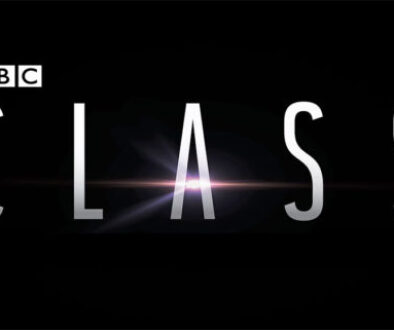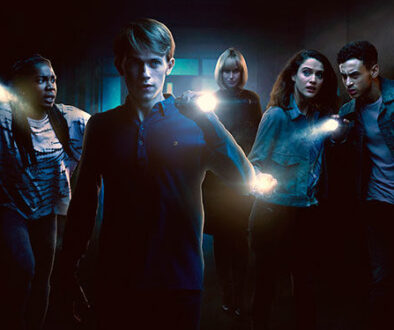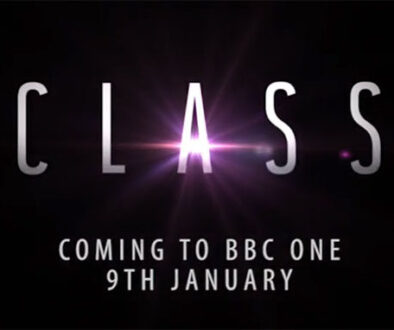Class: Episode 5 “Brave-ish Heart” Review
Clint Hassell gives his verdict on the fifth episode of Doctor Who’s new spin-off.

Note: this review contains full spoilers for the fifth episode, available on BBC3 now.
Creator Patrick Ness has big ambitions for Class, and it shows. The particularly kinetic camera movements, especially in the opening teaser, and the wide establishing shots of the Underneath combine to give “Brave-ish Heart” with a truly epic quality. The look of Doctor Who has certainly evolved from classic episodes, filmed in a quarry!
Despite the episode’s grandeur, its best moment comes as Ram explains how his religious beliefs affect choices about his appearance, his relationship with his father, and his outlook on charitable deeds. By utilizing an alien planet as the impetus for such a personal conversation, Ness delivers one of Class’ finest examples of quality science fiction to date. Doctor Who often finds cultural diversity in its alien guest cast – – the religious practices of, say, the Akhatenians serving as counterpoint to the beliefs of Who’s very human audience. Here, Class uses its cast of teen characters to do the opposite, broadening the minds of its audience not by comparing their beliefs to that of an alien culture, but to that of another human who may have a very different point of view. For Ness to see that potential and then to capitalize on that message by placing it in front of a young audience is commendable, and shows that he has thought deeply about his role as writer of Class.
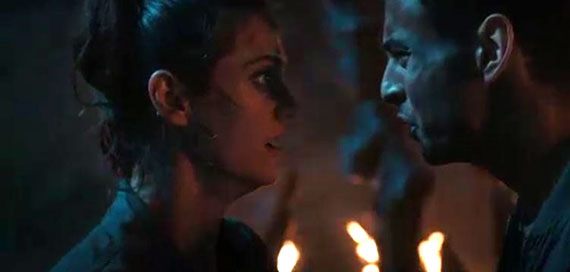
Just as well-scripted are the scenes involving new head teacher Dorothea Anes. She is well-connected and obviously, unsettlingly aware of intimate details of the main cast – – a situation Anes uses to her advantage, constantly changing the subject at any hint of a question that might reveal her hidden agenda. Jilly Kitzinger was similarly cryptic, utilizing misdirection as a weapon, and seemed poised to become Miracle Day’s breakout character. However, beyond securing Oswald Danes’ cooperation as spokesperson for Phicorp, Miracle Day seemed unsure of quite how to fit the character into the final episodes, and the character languished as the least-developed. Anes seems better connected to the ostensible threat of the Governors, and with only three episodes of Class remaining, surely Ness can be trusted to follow through on Anes’ potential as a character. That she could hold Matteusz at gunpoint but then honestly say to Quill, “I am not your enemy,” is delicious.

Further, the introduction of Anes gives Miss Quill a fitting scene partner. Quill hitting Charlie is “worth it” not only because it pays off a bit of continuity, but also because it gives Katherine Kelly the best dialogue she’s had all series. It is chilling how fast Quill crosses from despondent to preternaturally collected. Compare her line, “When your entire people have been killed before your very eyes, then you can talk to me about monsters!” – – her delivery indicating that she considers the grieving person she has become to be the real monster – – to her very next sentence: “You will use that on the Shadow Kin. Maybe not today, but, trust me, you will.” Seeing Kelly alternately cross between furious, grieving, conniving, and desperate is a masterclass in acting. While Fady Elsayed and Vivian Oparah may be delivering career-making performances in Class, it is finally evident that the BBC had every right to tout the hiring of established star Katherine Kelly as a boon to the new series.

All this being said, while “Brave-ish Heart” is a beautifully scripted episode, it is not necessarily a well-plotted one. While, upon first view, the inclusion of so many supporting characters, series-long plotlines, and location filming certainly add to the episode’s epic feel, upon second and third viewings, several problematic scenes become noticeable. Even assuming that April is hyped up on adrenaline, hate, and shadow power – – and further noting that Corakinus only has half a heart (which, so does she) – – how is a swordfight between a teenaged girl and a brutal, murderous warrior king even a close contest? Is “Brave-ish Heart” really presenting April as so connected to Corakinus that she is his equal in combat? Further, why does Corakinus not kill April at any of the points during which she is distracted by Ram, Varun, or her father, during their battle? Fighting with honor seems out-of-character for a murderous race that literally strikes from the shadows to kill. In order to put the emphasis on the dialogue between April and her father, Corakinus implausibly must take minutes to get off his back and return to fighting, or kneel before April, swords at his neck, rather than striking a fatal blow at every chance. It’s a little silly, but could be forgiven, if the dialogue between April and her dad were as revelatory as that between April and Ram, earlier in the episode.
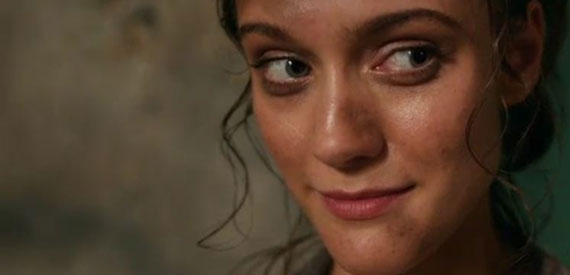
Further, it becomes apparent, upon repeated viewings, that several characters actually do little to further the plot and could have been excluded entirely from the episode. While Tanya’s challenging April’s dad to “open up [his] world view just a little bit” is a nice bit of character continuity – – she was similarly mouthy towards Coach Dawson, and it is becoming clear that she doesn’t tolerate people who aren’t as smart as her – – her inclusion in the rest of the episode seems more contractually obligated than organic. Yes, she brings Varun to join the group, but he contributes little to the plot, his trip to the Underneath somehow not resulting in his dragging Ram away from the giant, demonic shadow creatures. While Tanya does relay Matteusz’s text to April, it is actually Ram’s suggestion that results in April commanding the Shadow Kin to defeat the invading petals. True, Tanya isn’t arguing the immorality of slavery, an unfortunate role in “Co-Owner of a Lonely Heart” that positioned her as a character of color – – undoubtedly, an unintended slight on Ness’ part – – but, in “Brave-ish Heart,” Ness has to work incredibly hard to create a role for Tanya, unfortunately reducing a multi-layered character to yelling, “April, look out!” or, “Can you do any . . . ‘shadow stuff’?” or asking Jackie to create an emotional tether of memories and feelings.
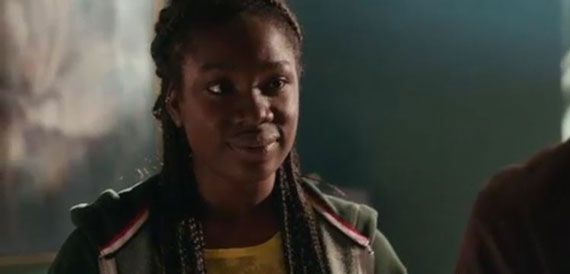
If this critique sounds like a complaint, it’s not. Actually, “Brave-ish Heart” demonstrates how difficult it is to write a script for an ensemble cast, especially one spread over two episodes. With six acts to plot, lines to script for five contracted cast members, two villains, and five guest stars, and a series-worth of plotlines to not only further but also imbue with metaphor and symbolism, it is truly magnificent that Class and its characters are as consistent as they are.
Despite its reduced budget and its focus on Coal Hill Academy students, Class delivered an off-world adventure, something Torchwood and The Sarah Jane Adventures each did only once, despite the alien focus of both. This is especially notable as, despite feeling like a finale, “Brave-ish Heart” occurs mid-series. So many programs stall significant plot developments until the end of the series (a particular problem in the U.S., where TV is produced in seasons of set lengths, typically 22 episodes, a move that frustrates the audience as the writers are forced to spin their wheels until the season finale, in May). Ness is capitalizing on Class’ reduced episode count and allowing the storyline to develop organically, rather than tying the plot to the dictates of the series’ airing schedule. If “Co-Owner of a Lonely Heart”/“Brave-ish Heart” is what a mid-series two-parter looks like, imagine what the finale will bring!
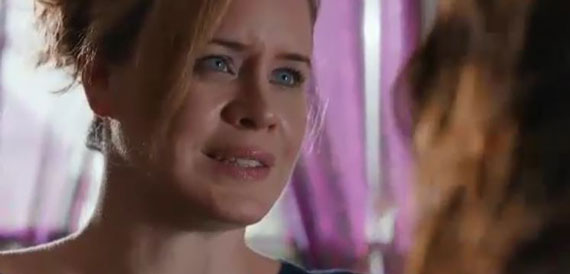
*Well, and for Matteusz to not die.




